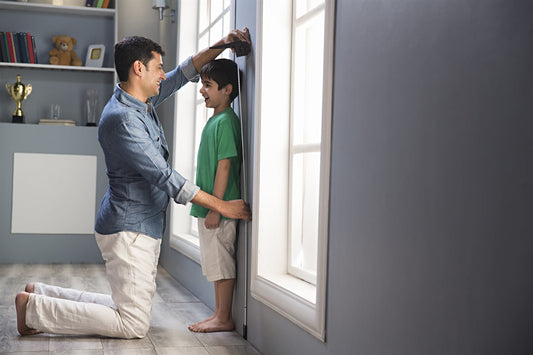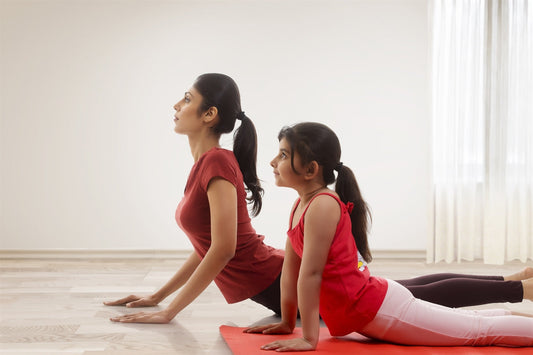When we see a box of puzzles or a ball, we automatically think of them as toys. But what if we told you that it's more than that for your child? It is an essential tool for learning and growing. Yes, this is how children learn the skills they will need to interact and communicate with their environment, peers, and parents. Experts also suggest that preschoolers should participate in both free play and structured physical activity1.
Here Are Seven Activities That Will Help Your Child Develop Crucial Cognitive Skills2:

1. Musical Chairs
The fun game of musical chairs helps kids improve listening skill and differentiate between sound and silence. It also teaches them self-regulation, preparedness and improves their reflexes.
2. Hopped Up Hide And Seek
In this game, you hide a small object in the room and then give specific instructions such as “move three steps forward” or “look next to something red” to lead the child to the hidden object. It reinforces verbal instructions and listening skills. It also teaches the child about prepositions, colours, shapes, etc.
3. Art And Craft
Drawing, colouring, finger painting, using tools such as glue and safety scissors, etc., helps develop fine motor skills in preschoolers.
4. Playing Outside
Riding swings and playing in the jungle gym helps children gain strength, coordination, and agility, while games like hopscotch help develop balance.
5. Sock Puppets Show
Kids can make hand puppets out of socks and put on a show with other kids. Creating puppets develops fine motor skills, while the show, which involves talking to others using the puppet, helps build language and communication skills. It also teaches kids to resolve conflicts using their words.
6. Playing House
Playing interactive games like House, where kids pretend to be grown-ups going to the office, cooking, setting dining table – teaches them life skills that they’ll need later in life. It also makes them more social.
7. String Games
Another activity that can provide hours of fun is string games. Children hold strings between their thumbs and fingers and make simple shapes and objects. These games help improve hand-eye coordination.
While these activities help them improve their cognitive and physical skills, we cannot ignore the importance of proper nourishment. We all have heard the adage; ‘a healthy mind resides in a healthy body.’ Kids need a lot of energy to get through the day, while their bodies and brains need nutrients to grow. However, many times nutrition in a regular diet might not be enough.
Adding Junior Horlicks# to your child’s diet helps bridge the nutritional gaps and provides them with several essential nutrients. Junior Horlicks# contains nutrients like choline, iron, iodine, etc. These are known to support brain development. Also present are calcium, Vitamin D, Vitamin K & protein, which support physical growth and development. It also contains nutrients such as Vitamin E, A, Selenium & copper, which support healthy immune function.







